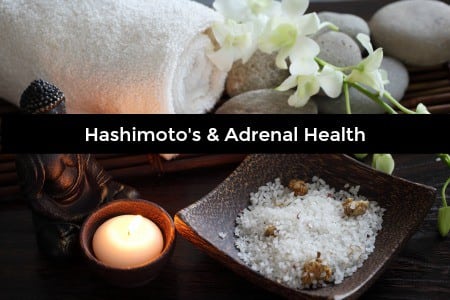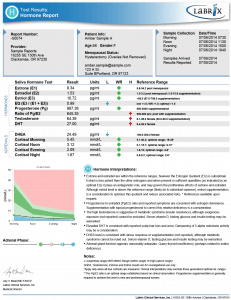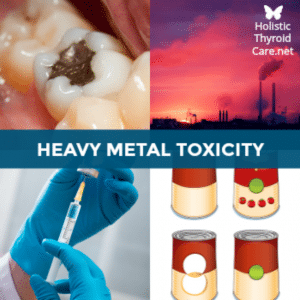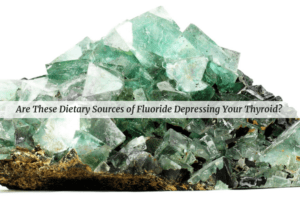
The “fight or flight” syndrome – you’ve heard of it, right? Imagine you’re being chased by a saber-toothed tiger dashing along with the intention to attack you as its prey. Believe it or not, we often get into this same situation in our minds without even realizing it. You see in our modern times we are not literally in that same life-threatening situation (or at least I hope not) however, our adrenal glands often react as if we are fighting for our lives, even if we’re only sitting in at a traffic light and our thoughts are racing and perpetuating stress and anxiety. The adrenals, located at top of each kidney, are forced to work overtime in an effort to deal with physiological stressors from all sources whether it be due to injury, surgery, chronic disease, work, family, finances, exercise, and environment, etc.
It’s hard to imagine these very tiny endocrine glands known as the adrenals which are essentially the size of a walnut, being responsible for manufacturing and secreting hormones that are vital to sustaining life by providing cortisol, androgens, adrenaline, and more. Cortisol production in the right amount is essential for the body to be able to cope with stress. Whereas thousands of years ago the stress endured by humans was for a finite amount of time – you either outran the predator and survived, or you were killed and devoured. Nowadays, stress and anxiety seem to be ongoing for many people.
Although not getting along with a boss, dwelling on our worries while standing in the grocery store line, having a bad day, or missing a bill payment are not life-threatening like the saber-toothed tiger example, our bodies often react to everyday stressors as if they were life-threatening. The body starts to feel unsettled. More and more cortisol is produced because the body believes it needs massive amounts of energy to run for its life. This happens over and over again throughout the day: getting the kids ready for school and getting yourself ready for work; traffic, spilling coffee on your new suit, your assistant calls in sick, you’ve got to send out 20 packages today, the babysitter is late picking up the kids from school and taking them to soccer practice, your late afternoon meeting runs over and you leave the office late so family dinner turns into you eating leftovers alone. And all of this is going to happen again tomorrow! Get the picture? We cannot escape stress…but stress can kill, or stress can create. It’s what we do with it, or how we learn to cope with it (not with alcohol or drugs, of course) that makes the difference.
So, here’s the problem: chronic stress can overload the adrenals to the point of exhaustion. If you have Hashimoto’s like me, you know exactly what I’m talking about. It’s the perpetual state of 24/7 inflammation occurring inside the body that causes the adrenal glands to become taxed and stressed. For some, fatigue will become overwhelming and the adrenals will no longer function properly to provide the energy and resources the body requires on a day-to-day basis. This is what functional medicine doctors are looking at – the subtle dysfunction of the adrenal glands whereas conventional medicine is looking primarily for full-blown disease, e.g. Addison’s or Cushing’s disease. Doesn’t it make more sense to address a dysfunction as early as possible? I think so.
When someone is exhausted, a natural suggestion is to get more sleep. That’s not always an easy fix where adrenal issues are concerned because insomnia is a common problem. Cortisol can become imbalanced due to low adrenal function to the point its upside down. High cortisol at night will keep you awake. There are, however, steps you can take to prepare your mind and body for sleep which is certainly one of the best ways to refresh and rejuvenate your body, mind, spirit, and emotions.

For better sleep quality and to support your adrenals
- Go to bed at the same time every night no later than 10-10:30 pm.
- Avoid stimulants such as caffeine and sugar especially in the late afternoon to evening hours (or preferably, remove them completely from your diet to avoid any rollercoaster-like blood sugar surges.
- Learn positive coping mechanisms such as deep breathing, distraction, and letting go of type A perfectionist thinking, or thinking you have to “do it all.”
- Keep a gratitude journal near your bedside. Every night, list 5 to 12 things for which you are grateful for that day. Remind yourself that even though you may feel fatigued, there are wonderful and perfect aspects of your life and many reasons to heal.
- Start the morning with a cup of warm water with freshly squeezed lemon and 1/4 teaspoon sea salt. Make sure to also get healthy fats (coconut oil, grass-fed butter or Ghee, avocado, raw nuts & seeds, organic grass-fed beef, wild-caught fish, and adequate vitamin C.
The one I use personally and recommend is Vitamin C-400 by Innate Response.
- Consume your dinner meal before dark most evenings. Eating a late dinner affects Circadian rhythm.
- Consider a magnesium supplement as this will help with sleep. The adrenals utilize more magnesium than normal when under stress.







Where is the adrenal test? It just leads you to another article on adrenal function.
Hi Kim,
The provider who designed the widget for the online quiz no longer provides support and thus the app was deleted.
You may be interested in my free Thyroid Fatigue Makeover 7-day program and taking the Fatigue Severity Scale Self-Assessment.
Here’s a link for the assessment: https://www.surveymonkey.com/r/fatiguescale
And here’s a link to join the 7-Day Thyroid Fatigue Makeover + Free Report: https://holisticthyroidcare.net/thyroid-fatigue-report/
Thank you for leaving a comment.